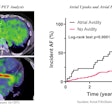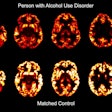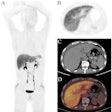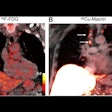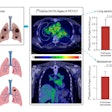The Society of Nuclear Medicine and Molecular Imaging (SNMMI) highlighted a recent study that it says lays the foundation for the development of radionuclide therapies targeting cancer stem cells.
In research published in the July issue of the Journal of Nuclear Medicine, a group at the Paul Scherrer Institute in Villigen, Switzerland, developed a new radioimmunotherapy approach that successfully eliminated cancer stem cells (CSCs) in preclinical models of ovarian cancer.
“Radioimmunotherapy enables precise, target-specific delivery of particulate radiation to cancer-associated antigens, while minimizing off-target accumulation and increasing tumor retention and irradiation, which makes it a promising choice for targeting CSCs,” said senior author Jürgen Grünberg, PhD, in a news release from the SNMMI.
CSCs are highly tumorigenic, self-renewable cells that play a key role in tumor relapse, metastasis, and therapy resistance. Although the clinical significance of eliminating CSCs is clearly recognized and CSC immunotherapies have been examined in preclinical and clinical evaluations, the development of such therapies remains a challenge, the authors explained.
In the study, the group identified CSC-associated biomarkers (L1CAM+/CD133+) in an ovarian cancer sample and then created radiolabeled immunoconjugates with lutetium-177 (Lu-177) or terbium-161 (Tb-161) to target these CSCs. The cytotoxicity of the radioimmunoconjugates (Lu-177 DOTA-chCE7 and Tb-161 DOTA-chCE7) was measured by cell proliferation assays in vitro and in xenografted mouse models in vivo.
Tb-161 DOTA-chCE7 showed significantly increased cytotoxicity, compared with Lu-177 DOTA-chCE7, eliminating all ovarian CSCs and tumor cells differentiated from the CSCs in vivo, the researchers reported.
“This signifies a pivotal step toward the translation of 161Tb-based therapies into clinical application,” noted lead author Tihomir Todorov, PhD.









